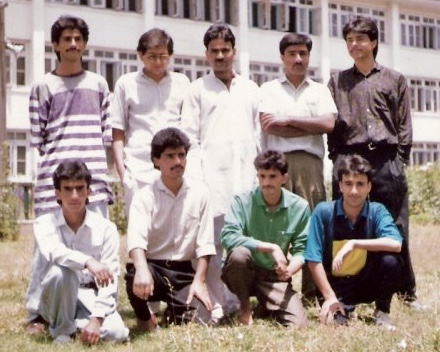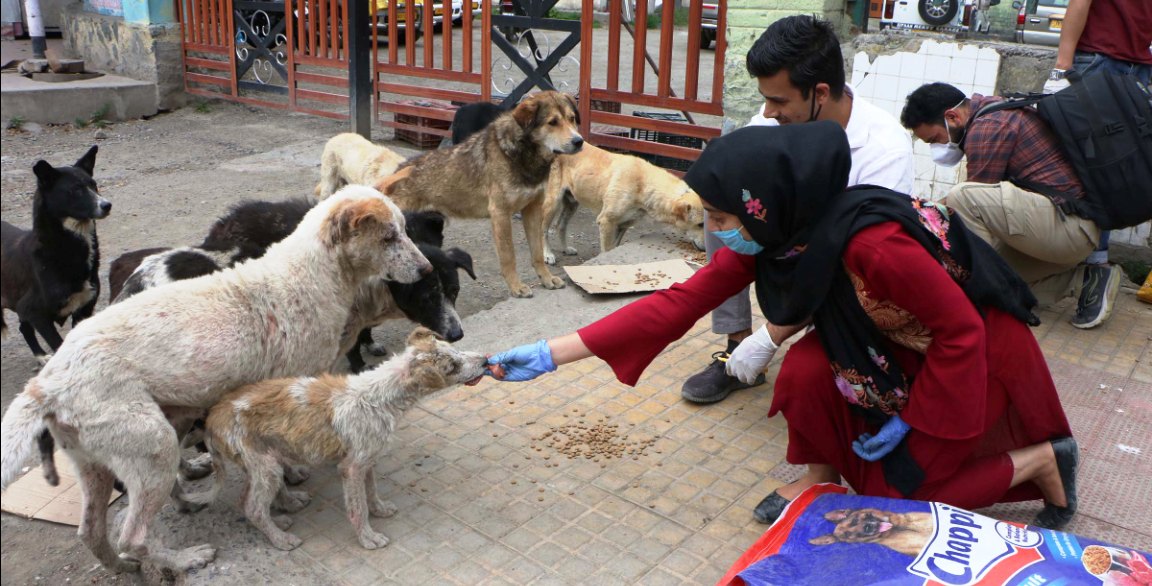by Masood Hussain
SRINAGAR: A Kashmiri medical researcher has led a groundbreaking intervention that will help to detect the prostate cancer with more accuracy and at low cost, British newspaper The Guardian reported. A team of scientists reported the breakthrough from Dundee University in the UK that is led by a Kashmiri super-specialist Prof Ghulam Nabi.

“The Dundee University-based team say they have used an ultrasound process called shear wave elastography (SWE) to detect prostate tumours,” The Guardian reported on Sunday. “The method is non-invasive and cheaper than current detection techniques.”
One of the most common cancers in men, global research suggest that one in every six men will get the condition in they lifetime. The UK alone has 47000 new cases of prostate cancer a year. One British citizen dies of this cancer every 45 minutes.
“Current diagnosis of prostate cancer is extremely inefficient, leading to unnecessary treatments for many patients,” Robin McKie, The Guardian Science Editor quoted Professor Ghulam Nabi saying. “Our new method is far more accurate and also allows us to identify the difference between cancerous and benign tissue in the prostate without the need for invasive surgery.”
Current diagnosis would require a physical examination of the prostate gland including a series of tests and biopsies, MRIs and other things.
“We have been able to show a stark difference in results between our technology and existing techniques such as MRI,” Nabi told the newspaper. “The technique has picked up cancers which MRI did not reveal. We can now see with much greater accuracy what tissue is cancerous, where it is and what level of treatment it needs. This is a significant step forward.”
The newspaper said the trial tests are going on and are highly positive. Though the SWE technology has been in vogue in the determination of breast cancer and liver diseases, its use in cancer required a special probe that the Ghulam Nabi led scientists developed.
Details posted at the Dundee University website said that Dr Nabi as the lead of undergraduate teaching in urology ( in 2012) also headed the Advanced Bladder Cancer Therapy (ABLADE) programme. “Over the next four years, working with two medical equipment companies in Russia and the Netherlands, the project aims to develop an infrared laser that would be used on outpatients to kill suspect tumours,” the website said.
“With £76,000 in funding from Friends of Stracathro, he led a small 50 patient pilot study to assess a new technique for detecting prostate tumours using shear wave elastosonography. This ultrasound based test examines differences in tissue, in particular, the tissue’s stiffness,” the University said, terming him the “busy consultant”. “He presented his findings at the high profile American Urology Association meeting in Atlanta, US, in May 2012. Soon after, a £ 250,000 research grant was awarded to fund a larger scale trial with around 200 people over the next three years, which will start before Spring 2013.”
It was the outcome of this project that created the global news.
Dr Ghulam Nabi, the website informs, is the first in Scotland, at Ninewells Hospital, to carry out single port keyhole surgery to treat kidney and urinary tract conditions. This procedure allows surgeons to operate through a single small cut, which minimises the chance of scarring.
A resident of Amrohi – the last village on this side of the Line of Control (LoC) in Karnah, Ghulam Nabi is son of illiterate parents who would do the marginal farming, braving the active border tensions. Graduated from Government Medical College, Srinagar 1993, Dr Ghulam Nabi did MS in Surgery from AIIMS, Delhi in 1997, followed by M CH in Urology from the in 2001. After spending a brief time in Urology as junior and senior resident doctor at PGIMER, Chandigarh and SGPGIMS, Lucknow, the young doctor to the UK in 2002 after passing basic FRCS examination of Royal College of Surgeons, Edinburgh. He successfully competed for national training number (NTN) of UK in Urology and subsequent training in East of Scotland Training Programme in Urology in 2007, was awarded MD in basic and applied sciences research by the University of Dundee in 2006.
In 2007, he successfully did his FRCS (Urology) examination thus in 2007 achieving his entry into the specialist register of GMC, UK through Joint committee of higher surgical training UK, 2008. Awarded fellowship in minimally access surgery in prostate cancer and completed this in France and Germany in 2009, Dr Ghulam Nabi was appointed as Consultant Urological Surgeon in 2010 at Ninewells Hospital, Dundee and started academic urology unit in the University of Dundee, 2010.
In 2015, the distinguished clinical academic in urology and surgery was appointed as head of Dundee University’s Surgical Uro-Oncology, a position in which he has been able to lead the breakthrough intervention in the diagnosis. He is also credited for introducing minimal invasive surgical interventions including using laparoscopic intervention in removing the prostate cancer, single port surgery and cryoablation for renal cancers.

Married to Asifa , a PhD scholar in Chemistry from Hyderabad, Dr Ghulam Nabi lives in Scotland. They have three children. A brilliant uro-surgeon, he has more than 2600 citations to his credit. He is perhaps the only Kashmiri medical scientists who is an invited author in the BMJ, more than century-old British Medical Journal. He has a prestigious Grant from the European Union
Ghulam Nabi’s is one of the few Amrohi families that have not migrated at the peak of 1990 crisis. He is so connected with the place that he ensures that he visits Karnah every year, even if it is for one day only. Even though he is in the UK, he ensures help to any person who is referred to him, his friends say.















